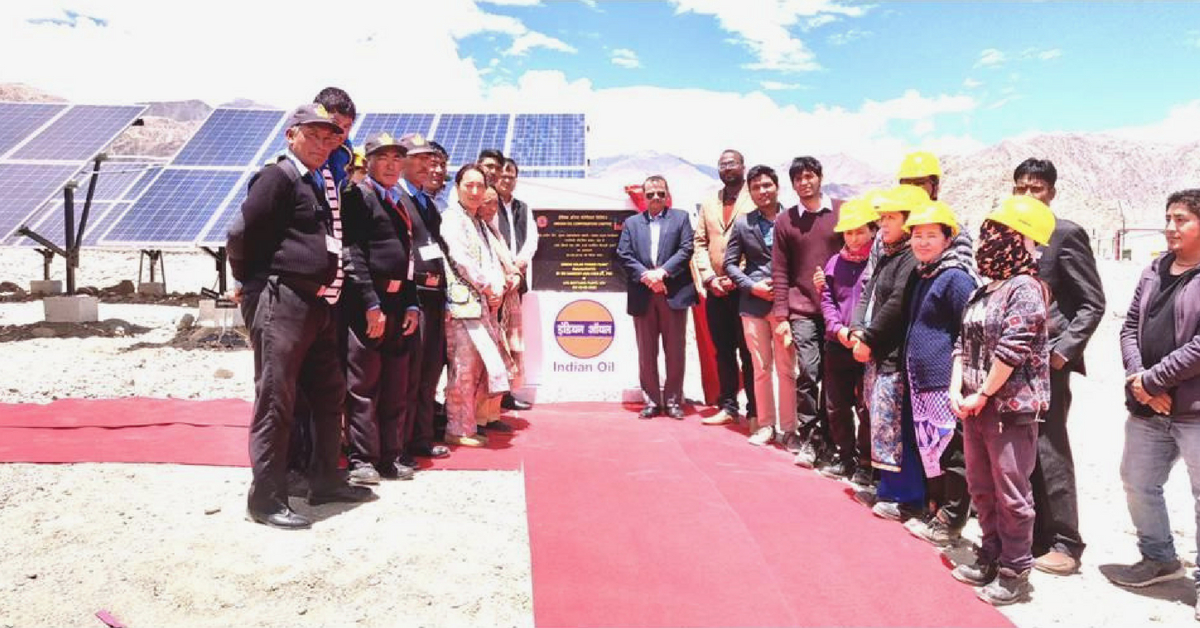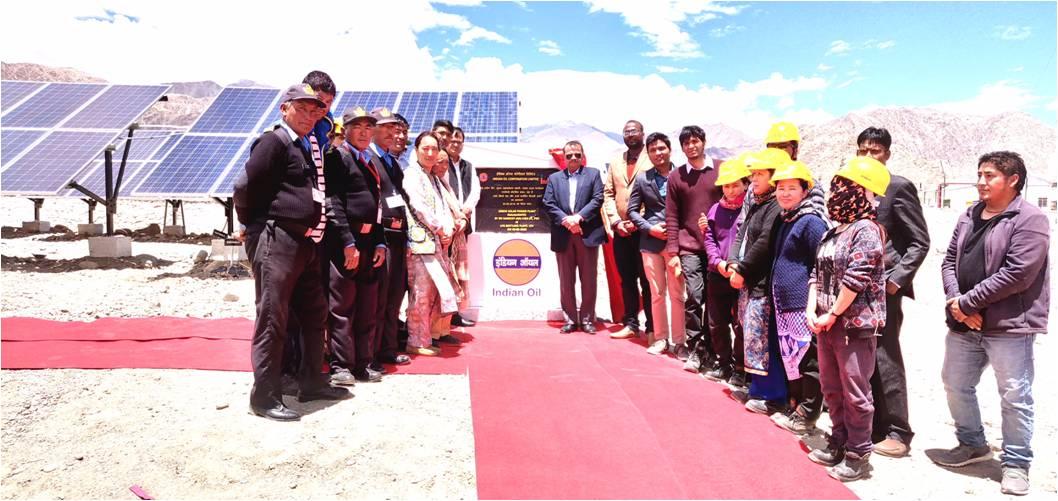The Sun Will Run World’s Highest LPG Bottling Plant in Leh, To Save 30000L of Diesel!
Situated at 11,800 feet, IOC's new solar-powered plant in Phey village will supply LPG to the Indian Army and the far flung areas of the region!

The Leh district will soon have the highest solar-powered bottling plant in the world. The Indian Oil Corporation, which runs the bottling plant in Phey village, made this announcement on July 3.
Situated at 11,800 feet above sea level, the bottling plant also supplies LPG to the armed forces and other remote areas of the region. In its announcement yesterday, IOC said that it has commissioned a 100 KW solar power plant to power its operations at the facility.
“The plant not being connected to the electricity grid was run using a diesel generator which consumed more than 45,000 litres of Diesel annually. Now that a solar plant has been commissioned, the diesel consumption will be reduced by 30,000 litres annually, reducing pollution in the area and saving precious fuel,” said the IOC in a statement.

With a storage capacity of 1,500 kilolitres, the IOC’s facility in Leh is among the six others it runs across Jammu and Kashmir, Punjab and Himachal Pradesh.
However, Ladakh has long utilised solar power to fulfil its energy needs. Situated at a high altitude, the region is best positioned to adopt solar energy. Leh, for example, receives 320 clear sunny days in a year.
In their bid to avoid the environmental pitfalls of using fossil fuels in this eco-sensitive region, nearly all hotels and households in Ladakh currently use solar energy for lighting and water-heating, and many of them use solar cookers too.
Also Read: Solar-Heated Mud Huts? Sonam Wangchuk’s New Innovation for the Indian Army!
“Ladakh has the highest insolation, which means the intensity of the solar radiation is highest. Every square metre of our land has the potential of generating 1,200 watts of solar power, which is the highest in India.
Also, the outside temperature in Ladakh is low which enables the solar panels to work better. When the outside temperature goes high, the efficiency of the solar panels gets reduced; that is why we are regarded as the best for solar energy,” said Jigmet Takpa, Joint Secretary at Ministry of Environment, Forests & Climate Change, to thethirdpole.net.
(Edited by Gayatri Mishra)
Like this story? Or have something to share? Write to us: [email protected], or connect with us on Facebook and Twitter.
NEW: Click here to get positive news on WhatsApp!

Similar Story

A Cafe, A Snow Leopard & More: Inside Ladakh’s Unique Ice Sculpture Exhibition
Earlier this year, the Kangsing Snow and Ice Sculpture Association organised the Ladakh Snow and Ice Sculpture Workshop 2022 in Chilling valley, along the frozen Zanskar River–a ‘first of its kind’ workshop in India.
Read more >
If you found our stories insightful, informative, or even just enjoyable, we invite you to consider making a voluntary payment to support the work we do at The Better India. Your contribution helps us continue producing quality content that educates, inspires, and drives positive change.
Choose one of the payment options below for your contribution-
By paying for the stories you value, you directly contribute to sustaining our efforts focused on making a difference in the world. Together, let's ensure that impactful stories continue to be told and shared, enriching lives and communities alike.
Thank you for your support. Here are some frequently asked questions you might find helpful to know why you are contributing?


This story made me
-
97
-
121
-
89
-
167












